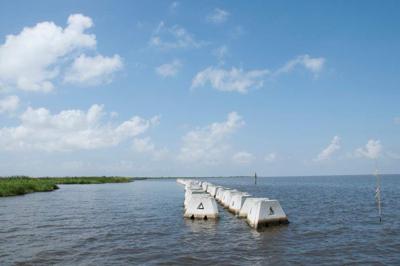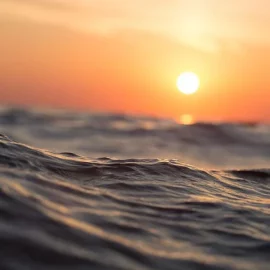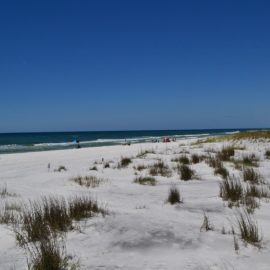
Oceans are heating up, not enough to boil crawfish but still worrying enough.
Recent headlines had me thinking about a question I posed five years ago to a coastal legislator. He opposed regulations on fossil fuel emissions, fearing they would hurt the oil businesses that employed his voters. “Don’t you think you have a responsibility to explain the dangers of sea level rise caused by those emissions?” I asked. “The coastal master plan says that could eventually drown your voters’ homes and businesses.” His response: “They aren’t worried about what might or might not happen 40 or 50 years from now, they’re worried about paying their mortgages next month.”
nola.com

Jobs and the pay that comes with it. That is what the state says when a company comes – the jobs and the salaries.
He had hit the bull’s-eye on the decadeslong hurdle facing public acceptance — or even discussion — of the dangers presented by climate change at that time. Climatologists were still pointing to the end of the century — 80 years away — when serious impacts would hit and were still debating on how serious those impacts would be. Unfortunately, recent news confirms that’s no longer the case. The serious impacts of climate change are not a future threat, they have arrived. Here’s one example of especially dire news for Louisiana’s fight to prevent the rising Gulf from swallowing its sinking bottom third — a struggle we once thought we had 50 years to win. Research published last week in the Public Library of Science reported: “Hot oceans are now the ‘new normal’ after passing a tipping point in 2014.”
On beach vacations to Cape San Blas in Florida we have noticed the almost bath water of the Gulf.
Records from the last 150 years show that in 2019, “57% of the global ocean surface recorded extreme heat, which was comparatively rare” a century ago. “Climate change is not a future event,” co-author Kyle Van Houtan said in a release. “The reality is that it’s been affecting us for a while. Our research shows that for the last seven years more than half of the ocean has experienced extreme heat.” This is likely transformative news for most coastal communities, and could be existential for many on Louisiana’s sinking coastal landscape from Mandeville to Lake Charles because of several scientific facts.
Oceans absorb heat. Then the water expands. That causes the water to rise. That causes flooding.
First, 90% of the rising atmospheric heat caused by human actions the last 150 years has been absorbed by the oceans. As every kid learns in high school chemistry class, water expands when heated, which is one of two forces driving the acceleration of sea level rise. The other is the melting of ice stored on land in Greenland and Antarctica and in glaciers worldwide which is flowing more rapidly into the oceans. Second, warmer ocean waters are also the fuel that leads to rapid expansion and intensity of tropical storms. That’s why we now routinely see minor storms turn into raging Category 4 monsters in 24 hours, as Hurricane Ida did. Third, while more intense hurricanes have stronger winds that alone are more destructive, they also drive higher storm surges. These not only level coastline communities like Grand Isle, but now reach further inland behind existing surge levees to places like LaPlace. This is why recent storms of all sizes are among the most expensive in history. Finally, that “tipping point” for ocean temps means the amount of human-caused heat absorbed in the past will continue to power accelerated sea level rise for centuries.
Heat builds up over years and we are now reaping the damage caused.
So, the science concludes we can’t stop the oceans from responding to the centuries-long abuse from fossil fuels. Coastal communities are now stuck in a more dangerous and costly era. Some might survive through continuous and costly adaptation; others will have to relocate or cease to exist. But the science also shows we have time to prevent even worse outcomes this century for our grandchildren — if we begin now enacting dramatic cutbacks on emissions. But the science also shows we have time to prevent even worse outcomes this century for our grandchildren — if we begin now enacting dramatic cutbacks on emissions. It’s about the possibility of even living in these communities for the next generations.
We do need to cut emissions but that would mean fewer new oil and gas companies in a state that says it is an oil state. Which is wrong and outdated but sadly some still act as if it were.



